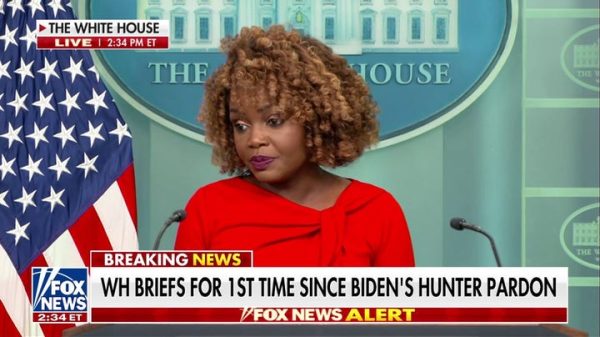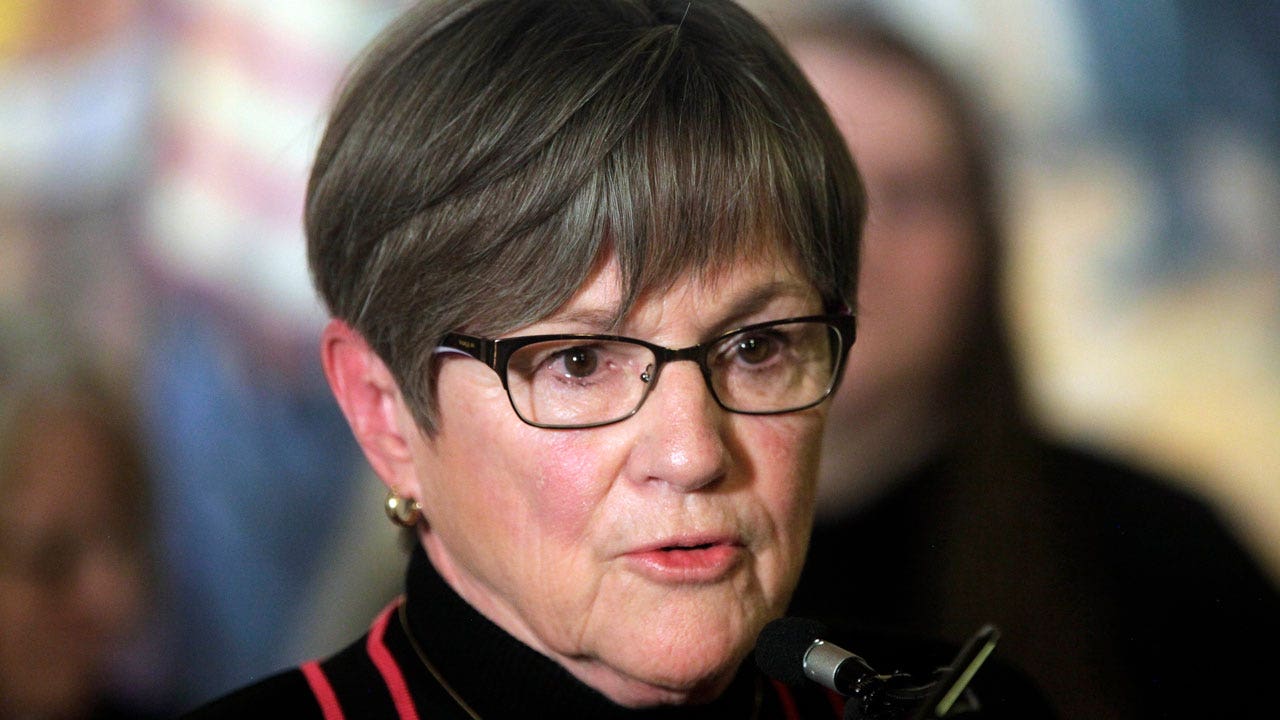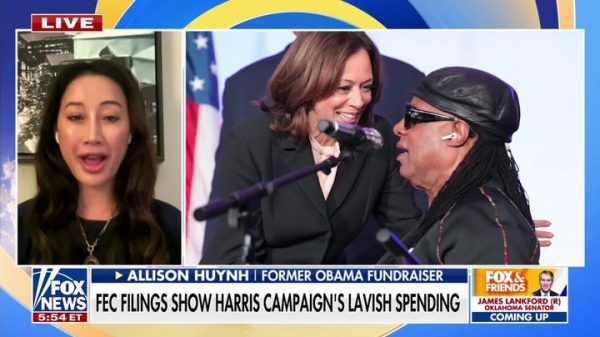Kansas’ Democratic governor on Thursday vetoed parts of the Republican-backed $6 billion funding plan for the state’s K-12 schools, setting up a likely legal battle that will test her office’s powers.
Gov. Laura Kelly, who won reelection in the conservative state in November, issued a statement explaining her decision to take the unprecedented step of vetoing parts of the proposed education budget, saying she objected to one provision, in particular, that she says would cut funding for rural public schools, which have been dealing with declining enrollment.
‘This provision pulls the rug out from rural school districts at the 11th hour,’ Kelly said. ‘If the provision is enacted, it will bring dangerous and devastating consequences for our rural districts.’
Kansas Senate President Ty Masterson and House Speaker Dan Hawkins, leaders of the GOP-controlled Legislature, quickly issued a joint statement criticizing Kelly, saying the state’s constitution limits line-item vetoes to appropriations.
‘We strongly encourage the Attorney General to immediately review this unconstitutional overreach,’ they said.
The spending plan, which would provide the bulk of the money that the state’s 286 school districts rely on, would also expand a program aimed at providing private school scholarships for low-income families. Although Kelly opposes that provision, she didn’t veto it.
Kelly said that because the bill mixed policy with funding, the Kansas Constitution allows her to veto parts but not all of the bill, as it does with legislation setting the state’s annual budgets. Top Republicans are likely to object and to challenge the assertion in court.
The issue has never been tested legally, creating uncertainty about how much money school districts might have and what policies they might face the next academic year.
In her statement, Kelly said the GOP-backed bill would change the way districts count their enrollment, which determines their funding. Currently, districts are allowed to use one of the two previous school years to determine how much money they will receive.
The new education bill requires districts to use the current or previous year’s enrollment to determine appropriations. That provision would force districts with declining enrollments to immediately make changes to budgets they have already approved for the upcoming year, she said.
Kelly also noted that the Kansas Supreme Court has upheld the current method for determining enrollment, and she said changing the formula would raise questions over the state’s compliance with that law.
Education groups had pushed Kelly to veto the bill even though it would increase the state’s total aid to districts by about 4% for the next school year. The increases would vary by district, with 29 — most with fewer than 700 students — receiving less aid than they did this school year.
Kelly has signed education bills with a similar marriage of funding and policy in the past. But she and top Republicans clashed repeatedly over her handling of the coronavirus pandemic. GOP lawmakers forced her to accept a whittling away of the powers of her office and of local officials to close schools and businesses and impose mask mandates.
If Kelly had vetoed the entire bill, she would have forced a special legislative session to ensure that schools are funded for the next school year because lawmakers have adjourned for the year. If she were to lose a court battle over her vetoing parts of the bill, it’s unclear if the entire bill would become law or if it would die altogether.
Educators also were upset that GOP lawmakers rejected Kelly’s proposal to phase in a 70% increase in funding for programs for students with physical or intellectual disabilities, or behavioral problems. It would have required an extra $72 million in the next state budget, but legislators only approved $7.5 million.
Kelly said she was disappointed that lawmakers didn’t increase special education funding and that they need to ‘correct their mistake’ when they return for next year’s session.
In a statement Thursday, the Kansas Association of School Boards praised Kelly’s line-item veto and also expressed disappointment in lawmakers’ ‘inadequate response’ to special education funding at a time when the state has a record budget surplus.
And educators opposed provisions that would expand an income tax credit program for donors to funds that provide annual private school scholarships of up to $8,000 annually to students from low-income families. Although the total credits would remain capped at $10 million a year, more students would be eligible for the scholarships.
Kelly said most Kansans don’t support such policies, and she chastised lawmakers for ‘logrolling’ them into the education funding bill rather than proposing them as separate bills.
Conservative Republicans wanted to pass a far broader plan to use state education dollars to help parents pay for private or home schooling for their children, something GOP lawmakers have enacted in other states, including Iowa, South Carolina and Utah.
Kelly is strongly opposed to the idea, saying public funds should go to public schools. Republican legislators were split.
The state constitution says that if any bill ‘contains several items of appropriation of money,’ the governor can veto one or more ‘such items’ while signing the rest.
While lawmakers often set policy in the budget with provisions directing how money must be spent or prohibiting some spending, those provisions are in effect only for a year. In the past, it’s been uncommon for lawmakers to mix spending with measures rewriting state laws permanently, so governors haven’t previously taken actions similar to Kelly’s.
<!–>
























